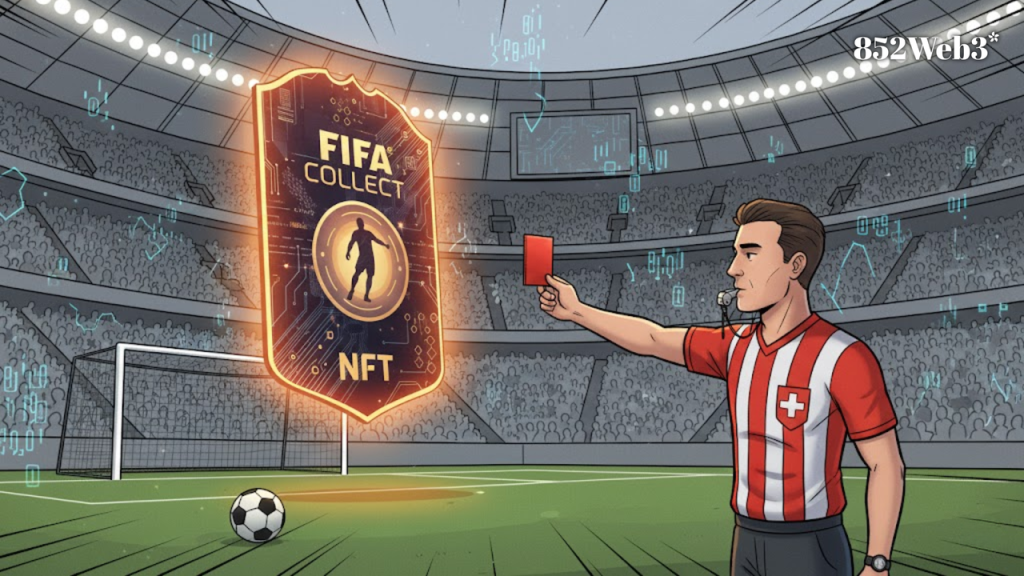The football giant’s Web3 experiment just met its first red card — and the whistle came from Switzerland.

The “Right to Buy” That Comes With a Twist
FIFA’s Collect platform introduced the “Right to Buy (RTB)” NFTs — priced up to US $999 — marketed as a way to secure early access to World Cup 2026 tickets. But eligibility wasn’t guaranteed. Whether a holder could actually redeem that ticket, or resell it at full value, depended on random draws, team progression, and secondary-market hype.
Switzerland’s gambling regulator GESPA argued that this setup fits the legal definition of gambling: a payment + chance + monetary reward.
When “Collecting” Meets the Law
GESPA has now filed a criminal complaint against FIFA Collect. Under Swiss law, any lottery or betting activity requires a formal license — something this NFT platform didn’t have. The watchdog noted that buyers essentially “pay to play,” with uncertain outcomes that may deliver real-world prizes. Some RTB NFTs reportedly traded for US $30,000 on secondary markets — thirty times their mint price — adding a layer of speculation that blurred the line between fandom and finance.
Big Numbers, Bigger Scrutiny
Launched in 2022, FIFA Collect has reportedly generated over $15 million in NFT sales. The platform has also jumped chains—from Algorand to Polygon, with plans to launch a proprietary “FIFA Blockchain” built on Avalanche tech. The expansion signals ambition—but also exposes FIFA to deeper regulatory complexities across jurisdictions.
When Fan Economy Meets Compliance Reality
What started as a creative way to engage fans has turned into a legal wake-up call. By blending ticketing, collectibles, and blockchain-based lotteries, FIFA may have unintentionally blurred the line between fandom and speculation. It’s a lesson every brand experimenting with Web3 fan engagement will have to face sooner or later: once “fun” includes money and luck, regulators will want a say.
Closing Thought
FIFA Collect’s case isn’t just about one platform—it’s a snapshot of Web3 growing pains. Fans wanted to get closer to the game; regulators just reminded everyone there are still rules to play by.
What do you think—was this innovation gone too far, or just ahead of its time?

